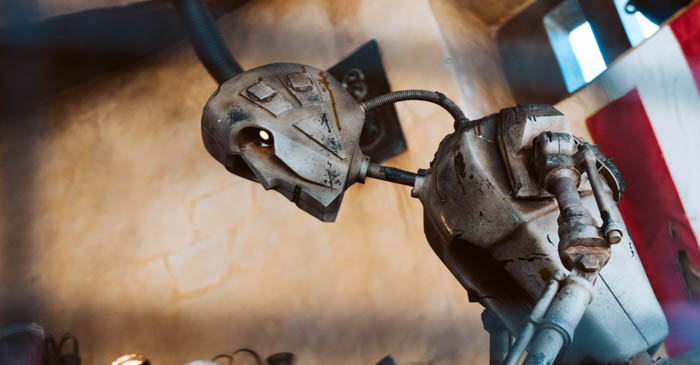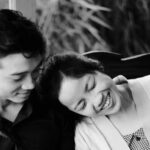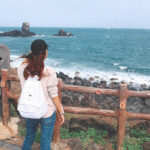Though sci-fi books have seen a recent boom in South Korea, the availability of Korean speculative fiction in English has been relatively limited. Fortunately, several works of speculative fiction from Korea have been translated into English this year. This article will feature four of these new works.
To the Warm Horizon by Choi Jin-young (trans. Soje)
When a devastating virus kills millions, nations crumble, and the world is left in shambles. The survivors of this cataclysm must scrape together what fortitude they possess to persevere in their hostile new world. Sound familiar? In To the Warm Horizon, we read about a band of Koreans trekking through post-apocalyptic Russia with this classic dystopian setting as the backdrop.
In the novel, four alternating narrators recount their harrowing journeys through a bleak landscape where vulnerability is never far from mind. Acts of sexual violence become rampant and a constant worry for women. Bizarre superstitions begin to circulate, including the belief that eating a child’s liver grants viral immunity. Throughout the narratives, fear drives characters to violence, pettiness, and selfishness. Nevertheless, the novel isn’t homogeneously bleak.
Compared to other works with similar viral, post-apocalyptic themes, Choi’s work doesn’t concentrate so much on world building as much as it uses the opportunity to explore human behavior under duress. This includes ample explorations of violence and vulnerability, yes, but the dystopian grit of the novel is lightened by touching moments of kindness and care that highlight the endurance of human affection even in the harshest of survival conditions.
Human relationships display their greatest redemptive warmth in the love that sprouts between the two characters Jina and Dori. As the two women struggle to survive, they fall for one another in spite of themselves, bringing moments of levity to the otherwise somber narrative.
As long as you’re prepared to read graphic depictions of violence and death, To the Warm Horizon is a captivating read that explores what happens when the necessities of survival take us to our limits.
Cursed Bunny by Chung Bora (trans. Anton Hur)
Cursed Bunny is a collection of strange short stories with a kick to them. In the collection, Chung Bora mixes different genres—including horror, the fairy tale, and science fiction—into chilling literary stories that, like most fairy tales, broach questions of morality. Cursed Bunny updates this traditional format for the contemporary reader.
Within the collection, readers encounter curses that have maddening consequences and bizarre fantastical elements that Chung sketches in all their weird otherness. Indeed, Chung’s writing embraces the abject and humanizes it (or perhaps “post-humanizes” it).
Emblematic of this process is the story “The Head,” in which a woman finds a talking head in her toilet that has been formed inexplicably from her waste. Other non-human subjects in the collection include robots, a fox that bleeds gold, and ghosts. Characters who express cruelty towards these beings do so at their own expense.
Chung also considers otherness as it’s instantiated in other people with marginalized social statuses, and if Cursed Bunny has an ethical stance, it would be to make an effort to show empathy and compassion towards others, no matter how different they are from you. As such, Chung does not present disgust and fear for shock value. Instead, she investigates the effects that these emotions have on our ethical categories and judgments, which in turn exposes the failings of capitalist patriarchy.
Readers will get a taste of all different kinds of stories in this collection, but what most of them have in common is an interest in exploring the unsettling topics that we normally turn away from, whether consciously or not. If you want to take a peek into the abnormal and freaky side of life, Chung’s sharp writing in Cursed Bunny will show you where to look.
On the Origin of Species and Other Stories by Bo-Young Kim (trans. Sora Kim-Russell and Joungmin Lee Comfort)
On the Origin of Species is a collection of seven stories and one essay by celebrated sci-fi author Bo-Young Kim. In this collection, Kim invites readers to invert their common understandings of familiarity and strangeness and venture into her imaginative thought experiments.
Questions about biology and time are particularly central to Kim’s work. In the title story “On the Origin of Species,” both are at stake as a post-extinction robot society weighs the plausibility of organic life. Can life truly emerge outside of a factory setting? For the robots in this post-life world, the origin of life is treated as a farfetched idea. Their incredulity toys with our ideas of what is impossible in belief versus in reality, and Kim’s skeptical attitude towards commonly accepted notions can be seen throughout the collection.
In particular, Kim critiques Korean culture through frames that excise Korean cultural characteristics from their typical contexts and transpose them into speculative scenarios. Kim takes on Korean cultural concerns like exam-centered education, urbanism, nationalism, mythology, and plastic surgery. The new contexts they’re written into render them obviously absurd, especially when they’re stretched to immense scales of time that break their ontological grounds.
Kim’s writing has a large following in South Korea, and On the Origin of Species is actually Kim’s second publication in English translation this year, the other being I’m Waiting for You and Other Stories (which was extolled by Parasite director Bong Joon-ho). This work, On the Origin of Species, makes some of Kim’s most popular stories available in English for the first time.
For the reader ready to dive into Bo-Young Kim’s probing writing, On the Origin of Species and Other Stories would be a great place to start.
Tower by Bae Myung-hoon (trans. Sung Ryu)
Bae Myung-hoon’s Tower is a collection of six interconnected narratives all set in a massive 674-story tower called Beanstalk. In this reality, Beanstalk is its own sovereign state, and its inhabitants live their entire lives within the building, sequestered from the outside world.
Tower is not a book that will draw you in with its twisting plots or character development. What stands out in Tower is the book’s elaborate tour of Beanstalk as well as the privileged insights it provides into the building’s unusual yet logical inner mechanics.
The sheer materiality of Beanstalk is one crucial element of the collection that allows Bae to allegorically explore life in cities and nations from a concrete perspective. We learn that elevators and floorspace have become critical, politically charged pieces of infrastructure. Social classes are spatially stratified vertically along the building. Residents may suffer from “terraphobia,” or a fear of leaving the tower and being on the ground. One story considers Beanstalk’s vulnerability to a terrorist attack.
Park Chan-wook (the director of Oldboy and The Handmaiden) has praised Bae’s work in science fiction for the author’s capacity to “write elaborately about big concepts.” This is what you get with Tower, as Bae’s witty writing folds political concerns into the intricate planning that undergirds the collection as a whole. Though Beanstalk clearly comments on sociological topics like high-rise life and urban planning, the collection as a whole also has a clear eye on politics and international relations.
If you’d enjoy immersing yourself in an elaborate, meticulously designed world, you should pick up Tower and explore its 674-story behemoth.
















